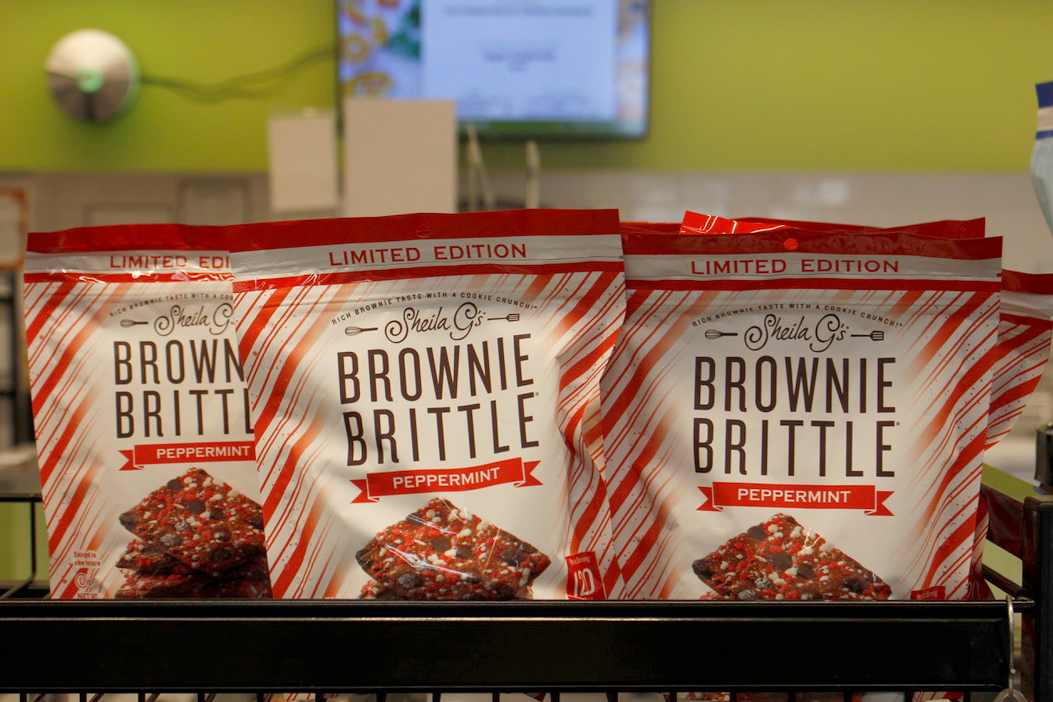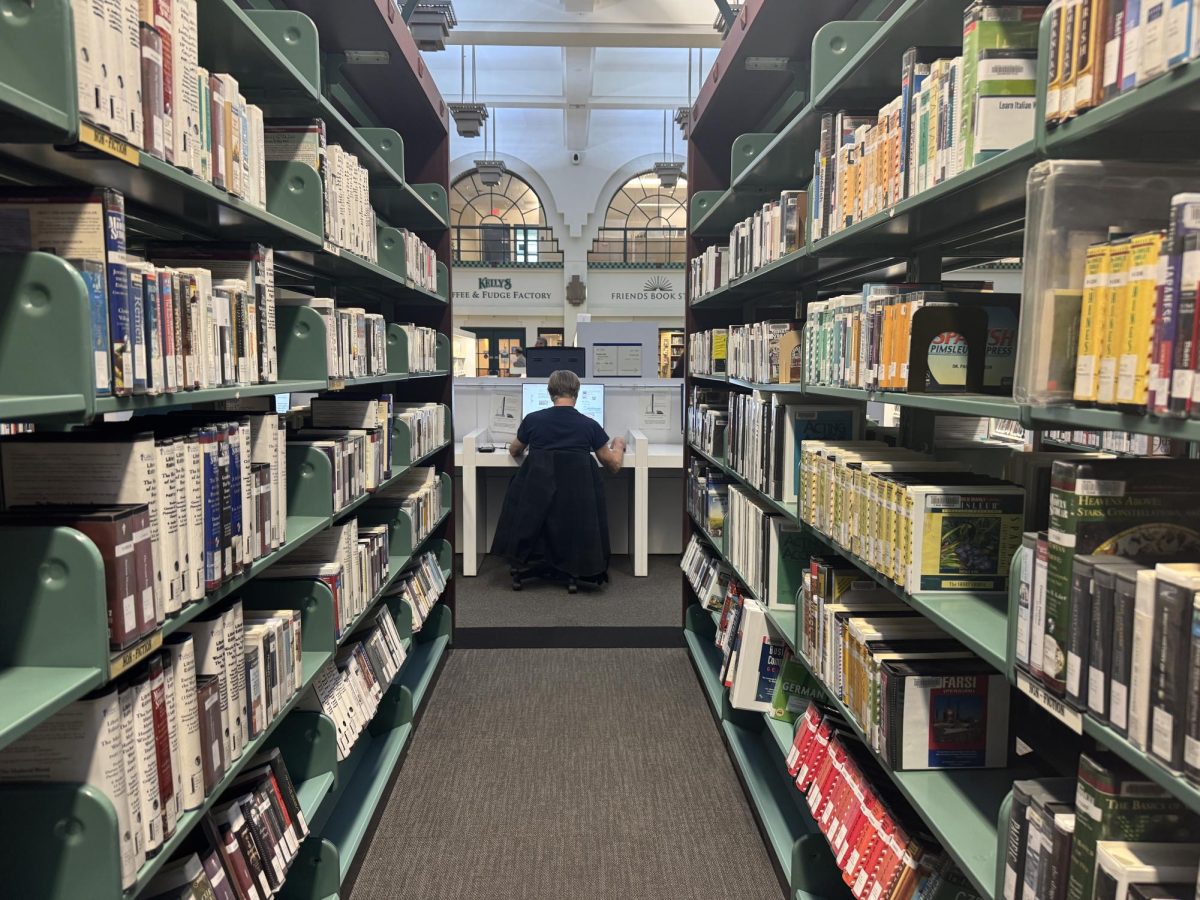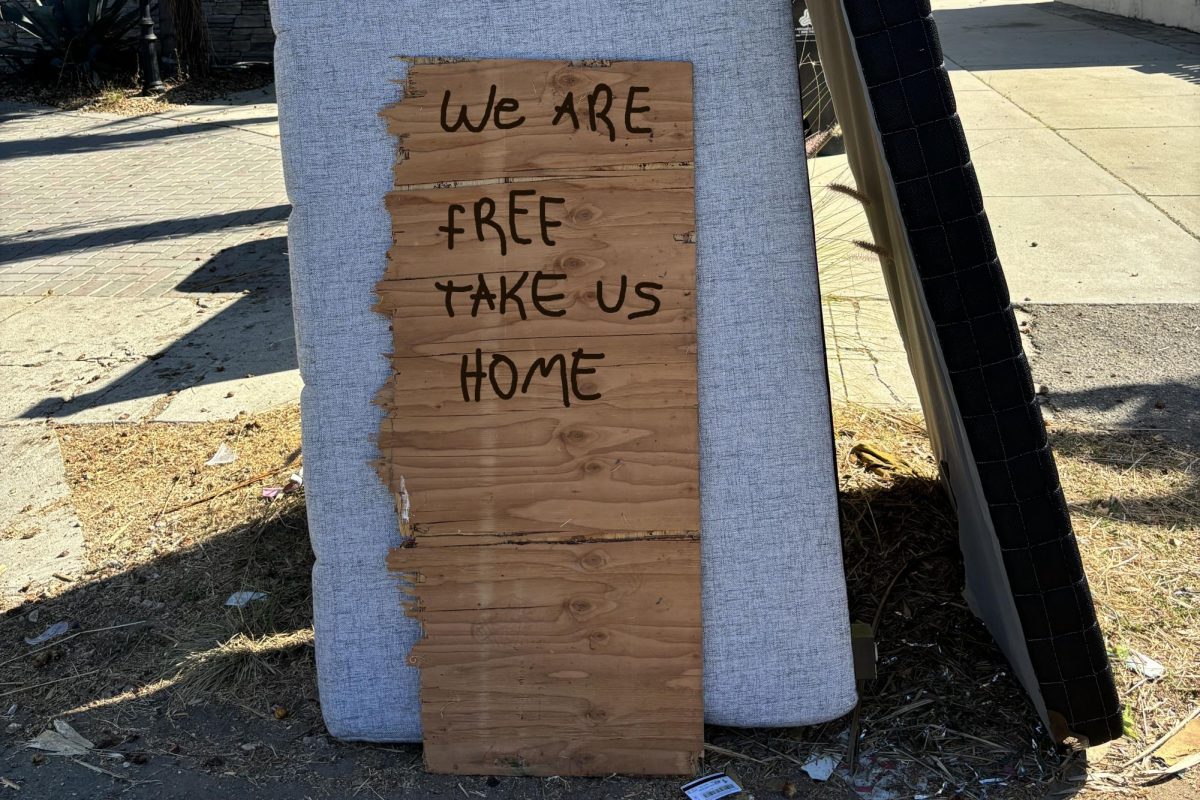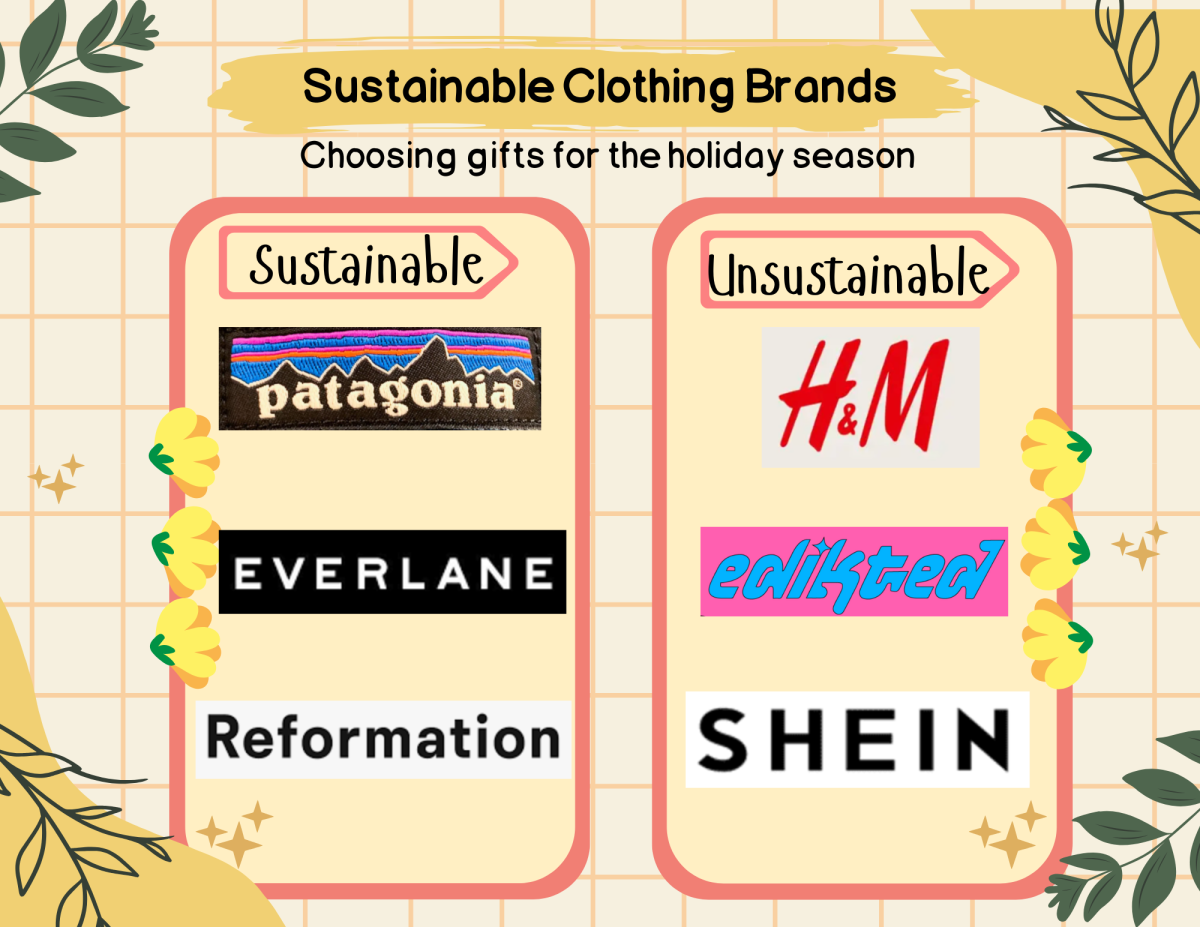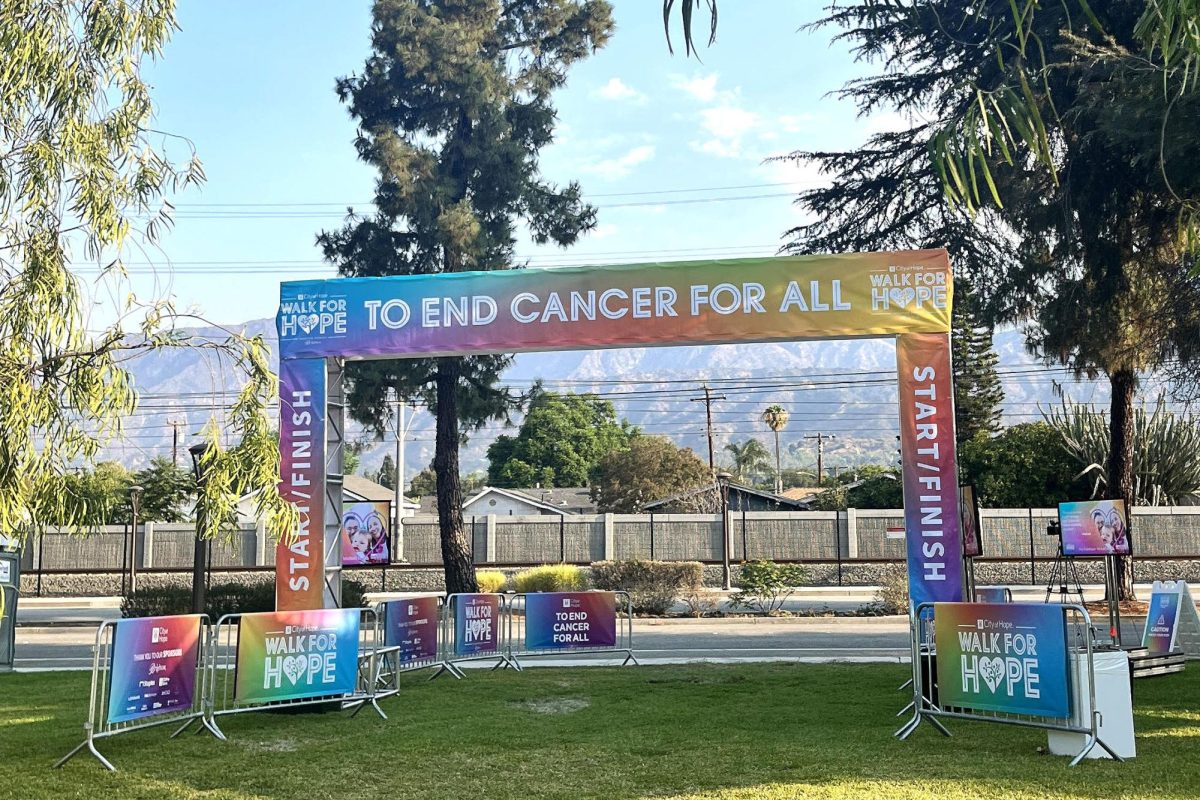Grade-level deans encased in festive wrapping paper during the annual Winter Wonderland. Peppermint- and hot cocoa-flavored brownie brittle stocking the servery’s shelves. Gingerbread houses smothered in sugary confections ranging from icing to gumdrops.
While each of these holiday festivities aim to spread winter holiday cheer, they also share another commonality: a lack of sustainability.
According to a 2022 study conducted by the Center for Biological Diversity, the amount of household waste in the U.S. during December is 23% higher than any other month, largely as a result of the month’s lineup of holidays.
Since with increased gifting comes increased consumerism, and, ultimately, increased waste, a detrimental impact is left on the environment. A 2023 study “estimated that millions of packaged and unused gift items are sent to landfills every month, generating enormous amounts of waste borne by the environment.”
Eleventh grade Dean of Culture, Community and Belonging Casey Huff teaches a course on sustainability and said she’s extremely passionate about climate change. Huff explained gifting single-use items to others as a loving gesture can also harm the environment.
“I wouldn’t say it’s exclusively in Western or American culture, but the idea of giving gifts, wrapping gifts really elaborately … a lot of single-use items, candy, candy canes, all of that has a significant environmental impact,” Huff said. “Though I completely understand that this is a deeply embedded part of our culture — it’s really meaningful to a lot of people in their families — there’s also the cost of, ‘This is resources. This is a lot of waste. This is a lot of consumerism.’ And anytime you’re purchasing anything brand new, you are inevitably drawing on a very minimal amount of available natural resources.”
Archer Council for Sustainability Executive Board member Kate Hanney (’25) said she recognizes the cultural, personal and sentimental significance of beloved winter holiday traditions, but also the lack of environmental consciousness thereof. She said there are alternatives to less-sustainable traditions that uphold the same value.
“The holidays [are] such a big thing. Everyone loves a holiday, so no one really wants to be conscious about what’s going on [environmentally],” Hanney said. “But I think that there definitely are ways that we can be more sustainable, like [using] newspaper for wrapping, and not making as much food that gets wasted and not over-consuming on presents.”
The 2023 study also found “90% of Americans agree that they wish the holidays were less materialistic,” which increased from 78% of Americans agreeing in 2005. Huff suggested giving nonphysical presents instead of single-use or material gifts, such as subscriptions or in-person experiences.
“I’m really big into gifting experiences. I also think it’s really great to give homemade things … I think as much as you can, do things that are either oriented in experiential types of gifts or something that is homemade,” Huff said. “Plus, wrapping it in more creative and sustainable ways is definitely a way to kind of walk that fine line between honoring tradition and being mindful of your impact.”
Junior Rachel Chung said she is a self-proclaimed “big Christmas lover” and said she eagerly anticipates the joy, love and spirit that are associated with the winter holiday season. She said the exchange of meaningful items can be modified to incorporate sustainability while still carrying loving meaning.
“My mom … doesn’t like to let things go to waste, so she will reuse gift bags and gift wrapping, and I feel like also in today’s day and age, that’s kind of seen as what some people may say [is] cheap,” Chung said. “But honestly, in the long run, that’s so much better … for the environment.”
Additionally, Hanney said Huff and ACS recognize the environmental impact of on-campus holiday festivities and explained the action they are taking to tie sustainability into celebrations.
“We tend to just do things like, ‘Bring your own cup for hot chocolate,’ and then also [reminding people to] collect your trash and put it in the recycling and make sure you’re being conscious,” Hanney said. “As far as Christmas holidays and also just the holidays in general, I think we just try and spread awareness about how much waste people [create].”
Chung said, aside from being an enthusiastic Christmas celebrator, she is also passionate about sustainability-related issues the planet continues to face. She emphasized taking small steps towards a greener future is as simple as making minimal alterations to one’s day-to-day life, especially during the holiday season.
“Just make small swaps. It doesn’t have to be insane, but a little goes a long way with that,” Chung said. “Wrapping things with grocery bags — I think that’s so cute. And you can … decorate it how you want and specialize it for each person … You can also support small businesses, and so there’s so many benefits to making those small swaps [and] looking for those alternatives.”
Huff said sustainability is imperative year-round. She said ACS has been collecting candy wrappers during Archer holiday celebrations, which are recycled by Rubicon. The company turns the wrappers into materials used to create dog beds and other items. ACS plans to donate wrappers from the recent Valentine’s Day campus festivities.
Additionally, Huff emphasized the space for inclusivity within the field of sustainability.
“My favorite thing about sustainability is that, even though it falls under the broad umbrella of science, no matter what you’re interested in — science or otherwise — there is a space for everybody’s voice and passion within the big umbrella of sustainability,” Huff said. “I encourage everybody to find what they love and think about ways that they can perhaps do it more sustainably.”



